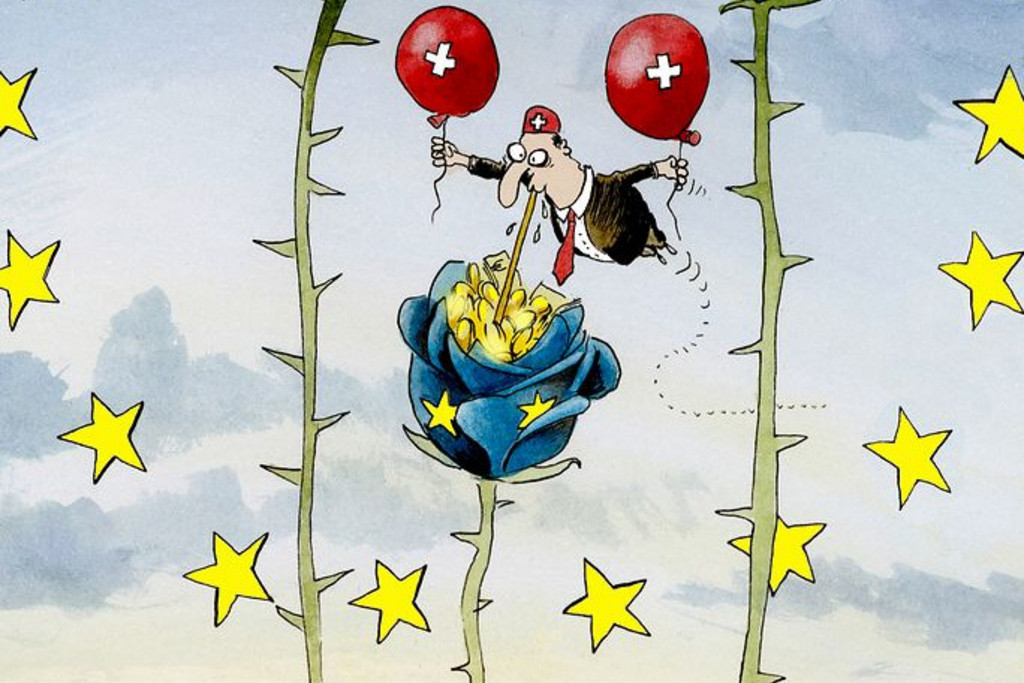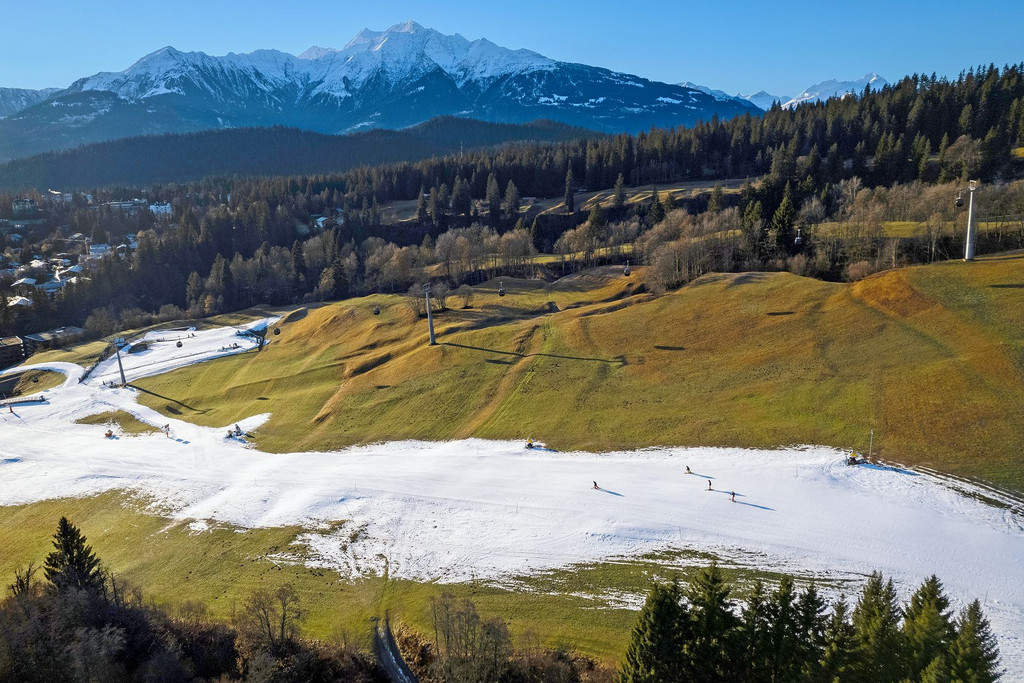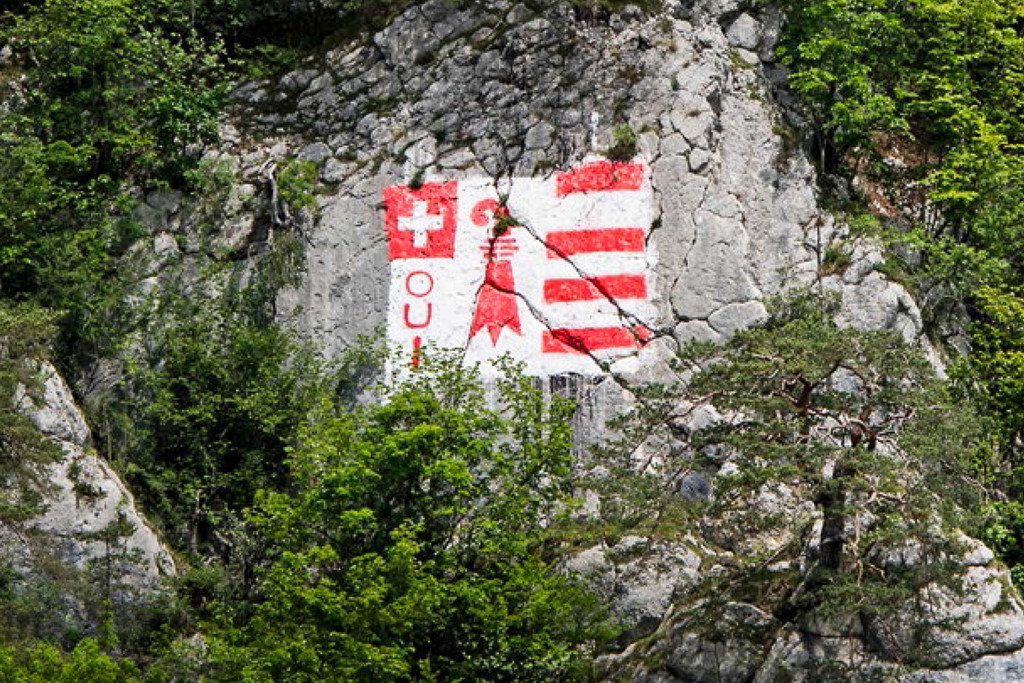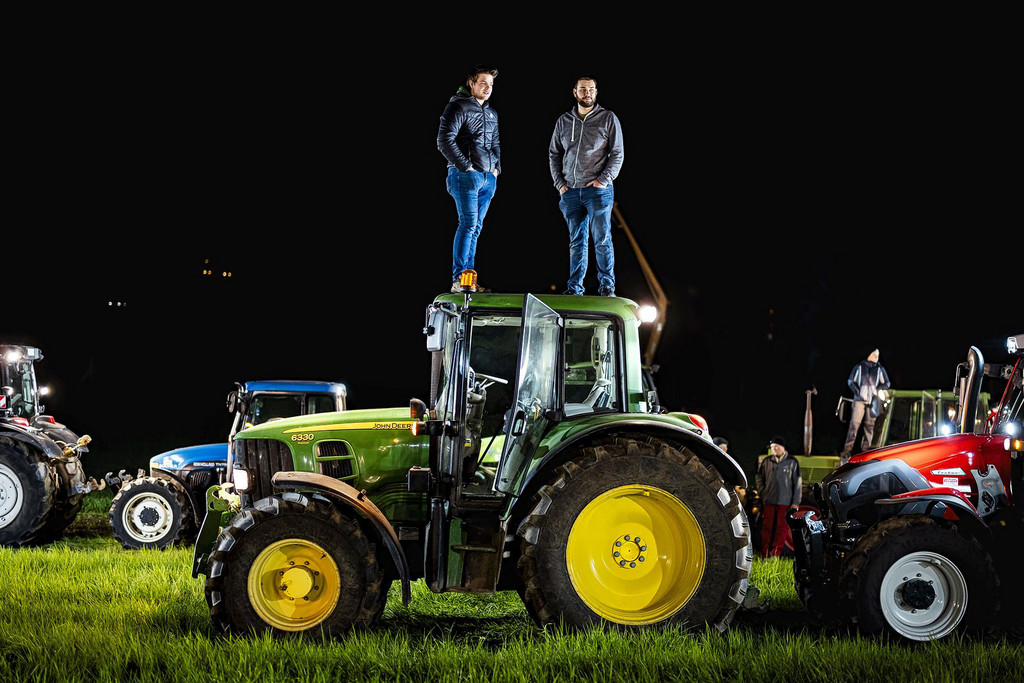The French-speaking Swiss, who are usually keen debaters, are only involved peripherally in the discussions over the significance of the historical events being celebrated in Switzerland this year. The reason for this is simple - Marignano in 1515 is not a significant date in French-speaking Switzerland as the battle never played an important role in the history of that part of Switzerland. The traditional narrative of German-speaking Switzerland is of little interest to the French-speaking Swiss because they were not involved at that time, either in the heroic founding years of the confederation, during the expansion to eight-canton Switzerland during the 14th century or in the subsequent period of expansion with the conquest of Aargau and Thurgau. Switzerland’s rise to become a power in Europe also took place before the French-speaking Swiss became confederates.
The eight-canton confederation of 1388 was an entirely German-speaking entity. The expansion of the Swiss confederation into what is now Romandy first began with the Burgundian Wars (1476 to 1481), which ended with the accession of Solothurn and Fribourg to the confederation. Bilingual Fribourg was the first French-speaking part of the confederation. However, strictly speaking, a French-speaking Switzerland was first established in 1798 with the Helvetic Republic. It was not until 1848, with the foundation of the federal state, that the people of Geneva, Vaud, Neuchâtel, French-speaking Fribourg, French-speaking Valais and the Jura also became citizens of a single state. 1848 could therefore also be declared the year when Romandy was founded.
In the 19th century, Romandy was nevertheless still clearly divided into two parts. There were the regions with a liberal and reformed tradition – Geneva, Vaud, Neuchâtel and the southern part of the Bernese Jura – and those which were predominantly Catholic and conservative – Fribourg, Valais and the northern Jura. The ideological and religious differences were much more important than the binding element of language.
The situation changed at the beginning of the 20th century. The growing enmity between Germany and France was also reflected in tensions between Switzerland’s linguistic groups. The French-speaking Swiss were suddenly no longer just citizens of Geneva, Vaud or Neuchâtel but defined themselves as belonging to a linguistic region. The term “Romandie” also emerged for the first time during that period as an alternative to the customary names of “Suisse romande” or “Welschland”. The new linguistic term expressed a new sense of togetherness but it has a “rather poor reputation” in French-speaking Switzerland to the present day, writes Christoph Büchi, Lausanne-based culture correspondent for the “Neue Zürcher Zeitung”. It only appears officially in the name of the “Tour de Romandie” cycle race.
Barbara Engel is editor-in-chief with the “swiss review”
Link to the book description of "A marriage of convenience"
Link to the main article "An election campaign fuelled by history"






![[Translate to English:]](/fileadmin/_processed_/3/7/csm_max-spring-3-cartoons-de_3c29839370.png)




Comments
Comments :